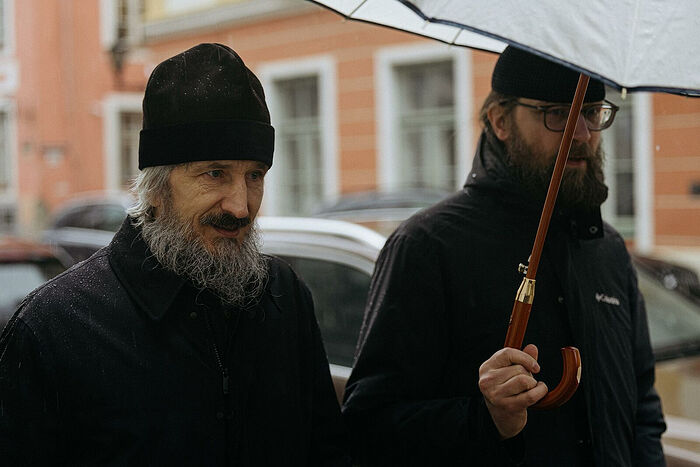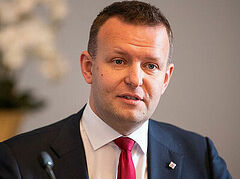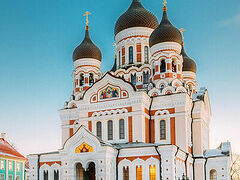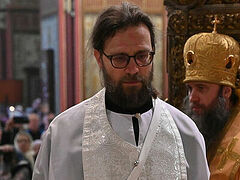Tallinn, April 22, 2024
 Estonian bishops Sergei and Daniel on their way to a discussion with the Ministry of Internal Affairs. Photo: err.ee
Estonian bishops Sergei and Daniel on their way to a discussion with the Ministry of Internal Affairs. Photo: err.ee
In 1996, the Patriarchate of Constantinople established its Estonian Apostolic Orthodox Church, a parallel jurisdiction to the already existing Estonian Orthodox Church of the Moscow Patriarchate.
Under the leadership of the Estonian-born Patriarch Alexei II, the Moscow Patriarchate broke communion with Constantinople. Relations were restored three months later after an agreement was reached that both jurisdictions would operate, with individual parishes and clergy choosing which to join. In the referendum held at that time, 54 of 84 parishes chose to remain with the Moscow Patriarchate.
Now, against the backdrop of the controversial document published by the World Russian People’s Council in late March, the Estonian Ministry of Internal Affairs is pressuring parishes under the Moscow Patriarchate to transfer to the Constantinople jurisdiction.
Recall that Moscow and Constantinople have been out of communion again since 2018, when Constantinople entered into communion with the Ukrainian schismatics and later established a new structure in Ukraine on the canonical territory of the Ukrainian Orthodox Church under His Beatitude Metropolitan Onuphry of Kiev and All Ukraine.
Estonian Minister of the Interior Lauri Läänemets initially said he wanted to see the government recognize the Moscow Patriarchate as a terrorist organization, though he has since softened his language. Some politicians have talked about seizing church buildings from the Estonian Orthodox Church, while others assure this will not happen.
And according to a recent report from err.ee, representatives of the Ministry of Internal Affairs have begun visiting parishes to try to convince them to leave Moscow and join Constantinople, as the Riigikogu (Parliament) considers labeling the MP as an accomplice to Russian aggression (rather than terrorism).
At the same time, Ministry officials acknowledge that there is currently no reason to suspect that any clergy or parishioners pose a security threat, though they worry that they will in the future. The Ministry has repeatedly expressed the same position—that it sees no threat from the Estonian Church, but is worried about what could happen if it remains under the Moscow Patriarchate. His Eminence Metropolitan Evgeny of Tallinn and All Estonia, labeled a security threat, was forced to leave the country in February after officials denied the extension of his residency permit.
“We’ve already held the first [parish] meetings and plan to further expand this activity next week,” said Raivo Kuyt, Vice Chancellor for Population and Civil Society of the Ministry of the Interior.
Ministry officials say that although the Church has autonomy in its administration and although the Estonian hierarchs firmly reject the World Russian People’s Council document, it is nevertheless under the worrying influence of the Moscow Patriarchate.
“We will start meeting with parishes and heads of churches to find a way out of the current situation together,” Kuyt said, to thus free the churches from the risk of “being used in the interests of Russian aggression.”
At the same time, Kuyt says no churches will be closed and “services will continue either way.”
However, Tallinn Mayor Evgeny Osinovsky says that city authorities are ready to sue the Estonian Church if it disagrees with the termination of real estate lease agreements. His office has already initiated the process of terminating the lease for the Metropolitan’s office.
Follow OrthoChristian on Twitter, Vkontakte, Telegram, WhatsApp, MeWe, and Gab!



